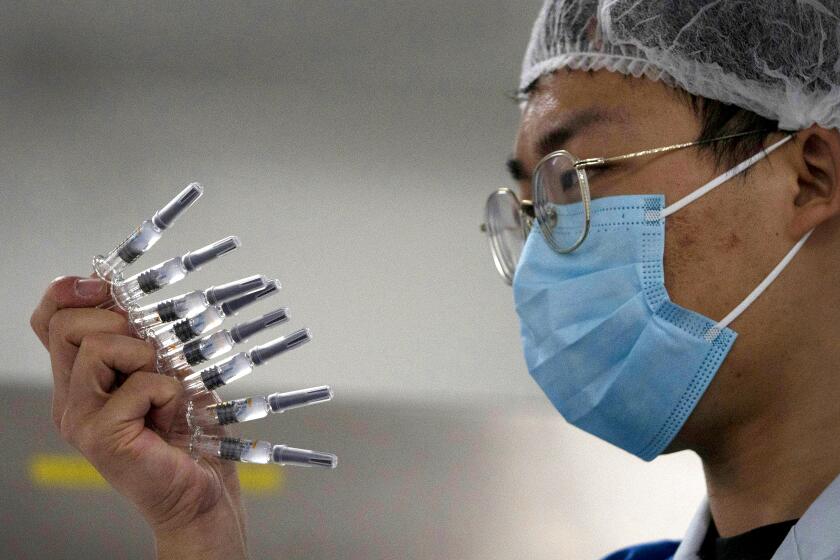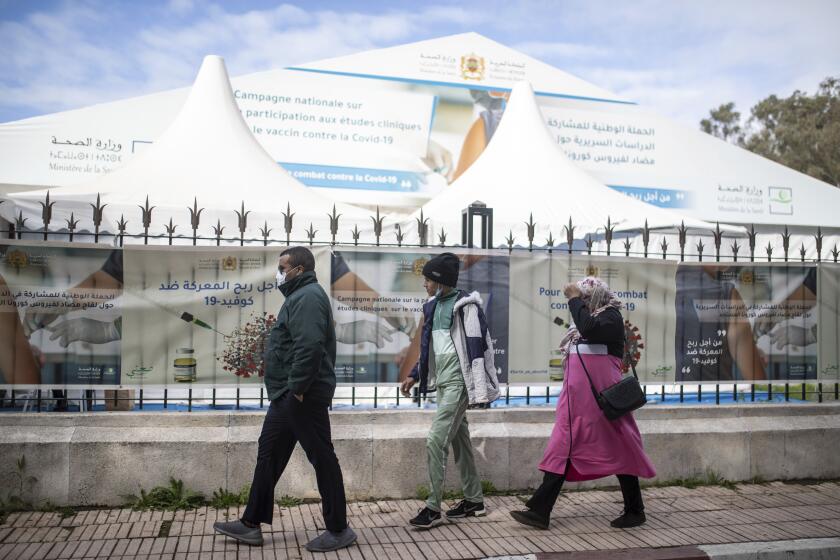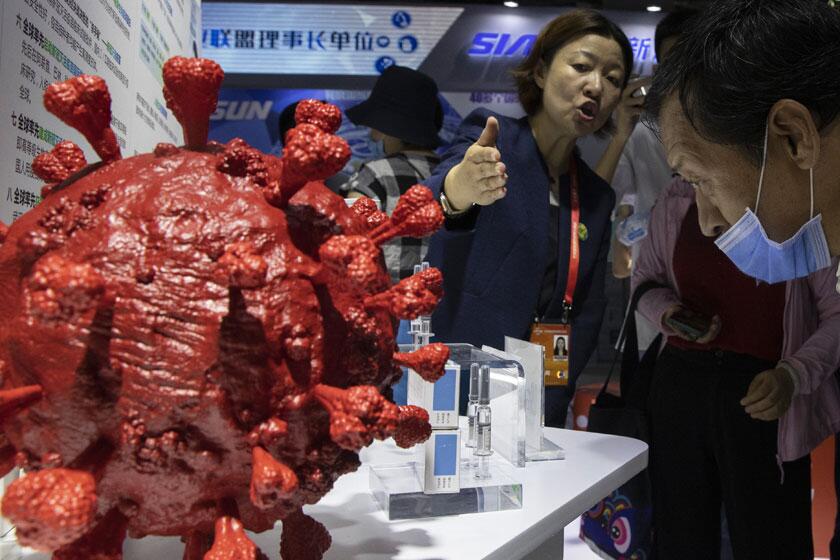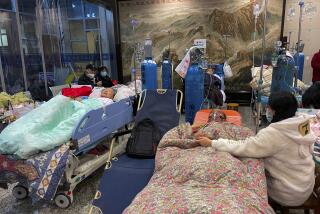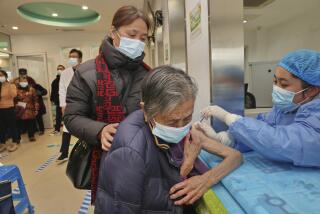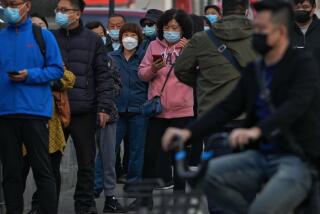Chinese drugmaker says its COVID-19 vaccine is 79% effective in final tests
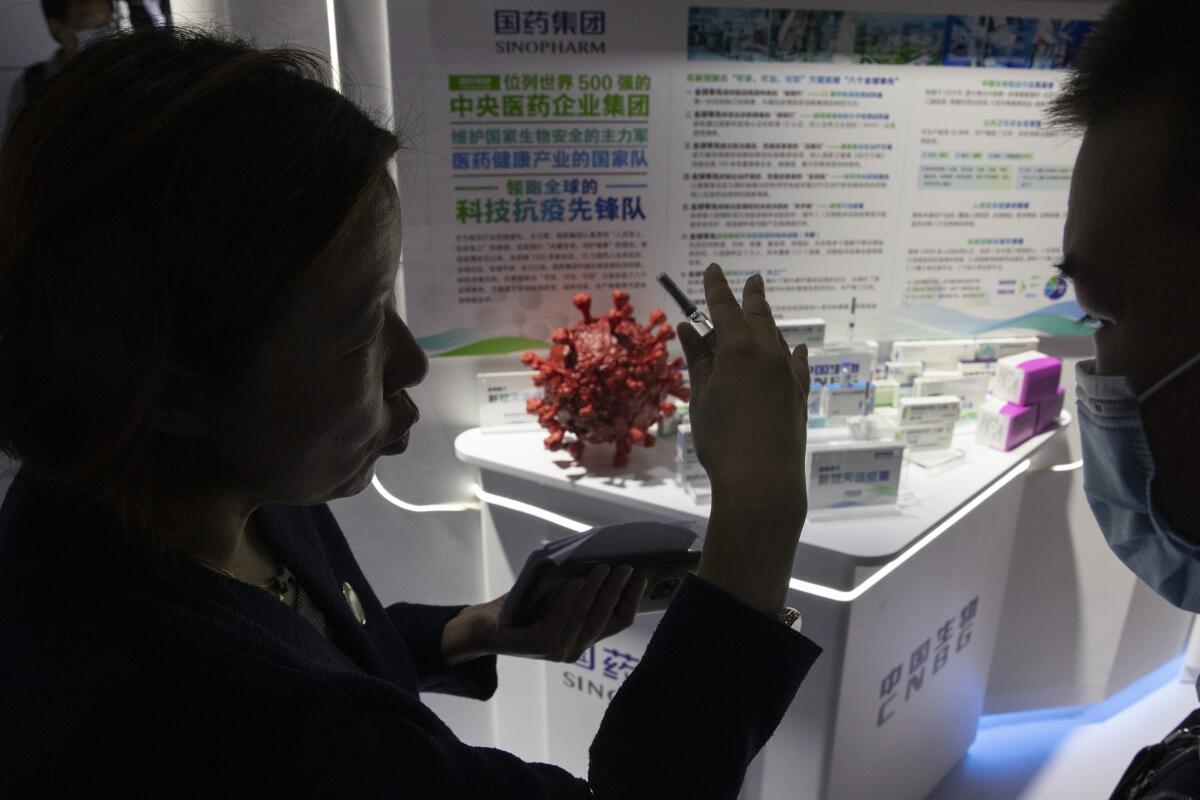
BEIJING â A Chinese drugmaker said Wednesday that its COVID-19 vaccine was found to be 79.3% effective at preventing the disease in preliminary data from the final round of testing, moving Beijing closer to being able to fulfill its pledge to supply other developing countries with shots.
The announcement by a unit of state-owned Sinopharm gave the first official data from a Chinese vaccineâs late-stage trial. Its reported effectiveness rate is behind the Pfizer vaccineâs 95% and Modernaâs 94%. Scientists have cautioned that COVID-19 vaccines may be only about as effective as flu vaccines, which generally are 50% effective.
The Sinopharm announcement Wednesday came as Britain authorized use of a COVID-19 shot developed by AstraZeneca and Oxford University, a vaccine that is easier to store and handle than the Pfizer and Moderna ones.
Sinopharm is one of at least five Chinese COVID-19 vaccine-developers. More than 1 million healthcare workers and others in China have received vaccines developed by Sinopharm and another supplier, Sinovac Biotech, under emergency-use authorization while full-scale testing was underway.
The two-sentence statement by the Sinopharm unit that developed the vaccine, the Beijing Biological Products Institute, gave no additional details. Final proof of its effectiveness will depend on publication of more data.
âThatâs useful, and at least it is showing that it is probably effective,â said Jin Dong-yan, a medical professor at the University of Hong Kong.
China has already injected hundreds of thousands of people with COVID-19 vaccines. Vaccines that have not yet completed clinical trials.
Jin said that âit would be helpfulâ to know how many people were vaccinated, how large the control group was and other details. âThey should release more information,â Jin said.
Also Wednesday, Sinovac Biotech signed an agreement to build a production facility in Beijing with a planned annual capacity of 1 billion vaccine doses, the Beijing Youth News reported.
Sinopharm, or China National Pharmaceutical Group, has applied for approval of its Beijing unitâs vaccine following the third and final stage of testing, the company said.
It would be the second vaccine from a Sinopharm unit, following a separate candidate developed by the companyâs Wuhan Institute of Biological Products.
Morocco is rolling out an ambitious COVID-19 vaccination plan, and will start by using a Chinese vaccine that has not completed full clinical trials.
The Beijing unitâs vaccine has already been approved for use in the United Arab Emirates. Regulators there said it was 86% effective.
The vaccine relies on two doses, similar to the Pfizer and Moderna shots. The company gave no information about side effects or conditions required to transport and use the vaccine.
Chinese authorities are carrying out a campaign to vaccinate 50 million people before the Lunar New Year holiday in February, when hundreds of millions of people travel to see their families.
A former Shanghai immunologist and medical professional, Tao Lina, said he received the first dose of the Sinopharm Beijing unitâs vaccine Saturday under the emergency-use program. Tao said he had âabsolutely no adverse reactions, not even a localized reaction.â
Hundreds of thousands of people have taken one of the four leading vaccine candidates in China.
Chinese producers have at least six possible vaccines in the final stage of clinical trials. They are testing vaccines in more than a dozen countries, including Russia, Egypt and Mexico. Few details have been released, leaving experts abroad wondering about effectiveness and side effects.
Western companies are distributing newly approved COVID-19 vaccines, but some health experts worry that too few doses will be available to poorer countries as richer nations buy them up. Chinaâs government says it will ensure that Chinese-developed vaccines are affordable for developing countries, and it has been actively pursuing distribution deals abroad.
Health experts say that the certification process in the United States, Europe, Japan and other developed countries might be too complex for Chinaâs vaccines to be used in those places.
More to Read
Sign up for Essential California
The most important California stories and recommendations in your inbox every morning.
You may occasionally receive promotional content from the Los Angeles Times.
